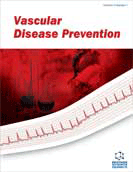Abstract
One indicator of increased risk for subsequent development of essential hypertension (EH) is the presence of the disorder in either or both parents. According to the reactivity hypothesis, exaggerated cardiovascular responsivity to stress has been suggested as a possible precursor to hypertension. This study was carried out in 60 healthy young adults who were equally divided into 2 groups, i.e. without and with parental history of EH. The study investigated the relationship between parental hypertension and the cardiovascular reactivity in response to simple hand-grip exercise and HR responses to Valsalva maneuver. The cardiovascular parameters recorded were systolic blood pressure (SBP), diastolic blood pressure (DBP), mean blood pressure (MBP) heart rate (HR) and Valsalva ratio. Both the groups showed significant cardiovascular reactivity to hand-grip test (p < 0.05) but group II had higher BP and HR values both at rest and after exposure to sustained isometric contraction (p < 0.05). Valsalva ratio was normal in both the groups. Exaggerated response to SIC could be attributed to cardiac sympathetic overactivity in these individuals. No difference in the Valsalva ratio in between the two groups could be due to the fact that the autonomic system activated in Valsalva maneuver is principally parasympathetic, it has been postulated that in sympathectomized animals normal BP and HR changes are observed if vagi are intact. The results of the present study confirm the previous findings that offsprings of hypertensive parents reach higher HR and BP levels during stressful task and such offspring could be subjected to primary prevention by altering the modifiable risk factors of hypertension.
Keywords: Parental history, essential hypertension, cardiovascular reactivity, sustained isometric contraction, valsalva maneuver
 1
1

